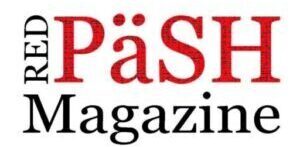
As a parent, you want your child to be fit and well. No one wants to think of their child suffering unnecessarily. However, for many children born in the US each year, congenital disabilities, ill health, life-limiting conditions, and accidents can impact their childhood. Let’s dive into Spotting Issues With Your Baby: 4 Signs To Look Out For!
Affiliate Content: This is NOT medical advice.
As a parent, knowing how to spot the signs that something isn’t right and get your child the help and care they need is the first step in assisting them to live their life as fully as possible around their conditions or bring them back to full health in the case of an accident or illness.
But what signs should you look out for in your baby or toddler that can indicate something is amiss?

Not Holding Their Head Up
Typically, babies lift their heads around the three to four-month mark, with most babies sitting up and supporting their head weight by 6 months. While this isn’t a definitive cut-off point, some babies develop faster and slower than developmental markers. If you notice your baby isn’t able to move their head or isn’t attempting to hold it up, it might be worth speaking to your pediatrician to determine if there is anything else at play or if they just need more time.
Not Eating or Talking Properly
Babies will generally make noise from a very young age, and as they get older, they will learn to form words and start eating solid foods. Again, while every baby develops at a different pace, if you notice your child struggling to talk or make sounds and eat properly, it could be worth investigating it. Issues such as oral motor dysfunction can impact your child’s abilities on both of these things, and you might notice them choking on foods, not being able to drink their bottle properly, swallowing, or refusing to eat hard foods before you notice any issues with their speech. It can present in different ways, so keep an eye out for signs so you can get this checked as soon as possible.

Stiff or Floppy Muscles
Hypotonia or floppy baby syndrome is more common than hypertonia, which is a stiffness in muscles. But if you notice your baby is unable to control their muscles or holding themselves stiffly, this is definitely something that you need to get checked out.
Having too much or too little muscle tone can impact your baby’s ability to develop normally, and the condition can be the symptom of something else at play. It’s imperative that your doctors run some tests to get to the cause of the issue; however, in some cases, there is no underlying cause.

No Balance
Babies start to balance between the ages of 4 and 6 months. This is when they learn to support themselves, and their balance comes into play. While their balance will improve over time, balance is instrumental in your baby learning to walk; but some develop it later than others.
While not reaching developmental milestones isn’t always a cause for concern, if your baby has surpassed 15 months old and cannot take a few unaided steps, it might be worth visiting your doctor’s office to have this looked at. Luckily, there are physical therapy options available to support your child in developing the balance to assist them in walking and other avenues, depending on the cause of the problem. We hope you enjoyed this article about Spotting Issues With Your Baby: 4 Signs To Look Out For!
Red PaSH Magazine is a lifestyle publication. Our slogan is “all your tiny obsessions.” We are strong advocates of self-love, self-care, body positivity and supporting minorities, especially women, people of color and communities not highlighted in mainstream media. Please send pitches to southernpashmag@gmail.com. Please note that we sometimes use affiliate links. If you purchase anything from a link we have provided, we may receive a small commission. This money is used to help support our efforts at PaSH Inc. Check out our sister magazine, PaSH Magazine and Exploregeorgianow.com.
